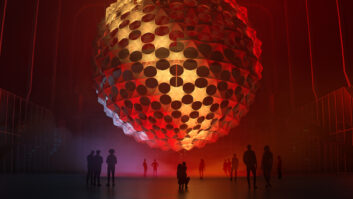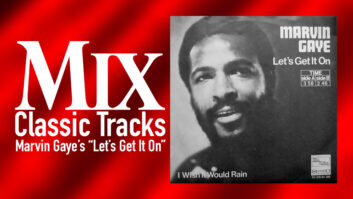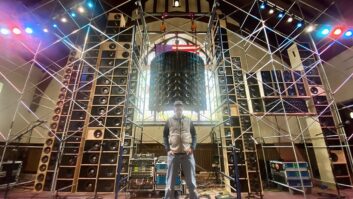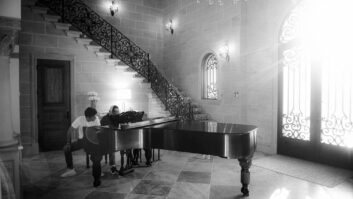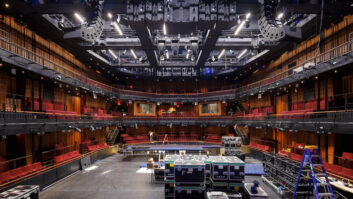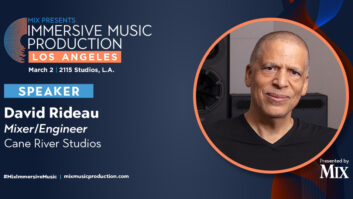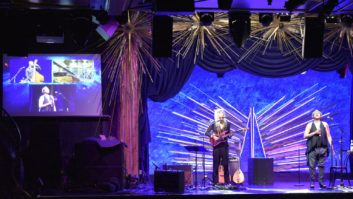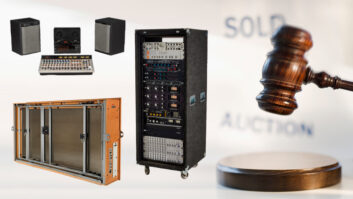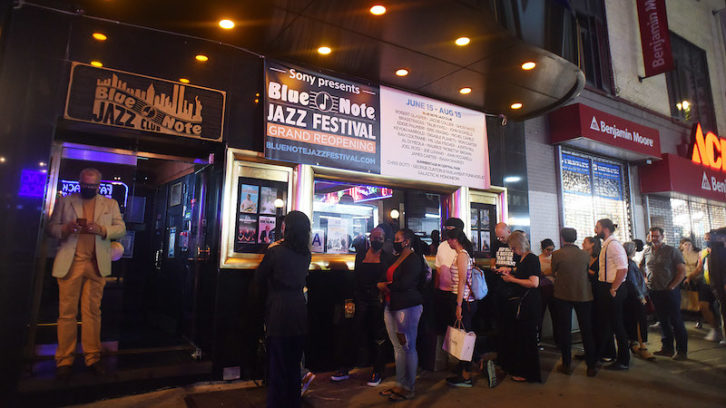
As one of the best-known jazz clubs in the world, New York City’s Blue Note has been a mainstay of the city’s music scene for decades, and this month finds the intimate Greenwich Village venue celebrating its 40th anniversary. While the Blue Note has hosted music legends across the years and spawned its own annual festival, it hasn’t been immune to the effects of the pandemic, or that New York City venues were shuttered for months on end. “Last fall, we were doing a lot of livestreams— two or three a weekend, partnering up with the Japanese network NHK, and then we started doing socially distanced shows again around February with small audiences until the city closed back down again,” recalled production manager Patrick LaMarca.
When the pandemic began to subside in the spring, the possibility of reopening again started to become a real possibility, though what restrictions that might entail were still unknown. Undeterred, director of programming Alex Kurland began planning the club’s annual Blue Note Jazz Festival, which encompasses gigs not only at the venue but other sites as well, including the 5,000-capacity Central Park Summerstage.
“We went into booking the Blue Note Jazz Festival, June 15 through August 15, based on a much lower capacity,” said Kurland. “We’re a 200-capacity venue, so scaled down, it would have been 60 people. We were lucky, because it happened to align almost to the day with the Governor’s reopening of New York City—we got to open the Blue Note without the social distancing and the Plexiglas that we had invested in and installed. We’re at full capacity and abiding by everything the laws and regulations require.”
With the potential sound reflection nightmare of Plexiglas out of the way, the Blue Note has returned to hosting two sets a night, though its traditional weekend late-night sets and Sunday brunch remain on hold. While the stage is centrally placed in the room, the FOH mix position is set off in a far corner and centered around a Yamaha CL3 mixer that sends signal to a Peltrix-designed loudspeaker system of custom SLS boxes and two d&b audiotechnik cardioid subs per side, all powered by Yamaha amps.
Blue Note, Audinate, Peltrix Team to Beat Latency for Remote Performances
Since acts typically play a six-day run, Tuesday through Sunday, a staff engineer is assigned to the length of a run. “We work with artists’ engineers all the time; they bring in their show file and we facilitate the run,” said LaMarca, who began working at Blue Note in 2008. “When I was coming up, it was a great opportunity—I got to shadow some amazing engineers, pick their brains and watch for what to do and not do.” While he still tackles some Blue Note gigs, these days, LaMarca’s main focus is his work as production manager of 1,200-seat Sony Hall in Times Square—which is owned by both venues’ parent company, Blue Note Entertainment Group.
One of the key things audio staffers pick up at the Blue Note is flexibility, as the club might host a solo piano player one week and then tack on a stage extension the next week to make room for a 17-piece big band. With such variety of artists and genres—August alone saw the club host everything from Ron Carter to GZA with Talib Kweli—the mic locker gets a workout, too. Along with numerous Countryman and BSS DIs, the venue always has a selection of Shure SM81s, AKG C414 and 451s, Sennheiser MD 441 and e609s, Electro-Voice RE- 20s, DPAs for the piano, a few Neumanns and more on-hand.
Getting back to live music has been a pleasure for LaMarca, who spent the pandemic watching his side hustle—4 AM Candy Co., which makes giant gourmet peanut butter cups—go supernova after a write-up in Time Out New York. “These days, I’m running from a kitchen to a venue and back to the kitchen,” he laughed. “It’s been a really weird year.”
The artists and audiences have welcomed live music’s return, too. “We’ve had a lot of underplays,” said Kurland. “Jacob Collier is playing tonight at the Blue Note, whereas he could play Radio City Music Hall now…. For a lot of the artists, it’s their first show since the pandemic, and likewise for most of the audience, so it’s been a love fest going on all around—a high level of gratitude and appreciation for just being able to be in a venue and see great music.
